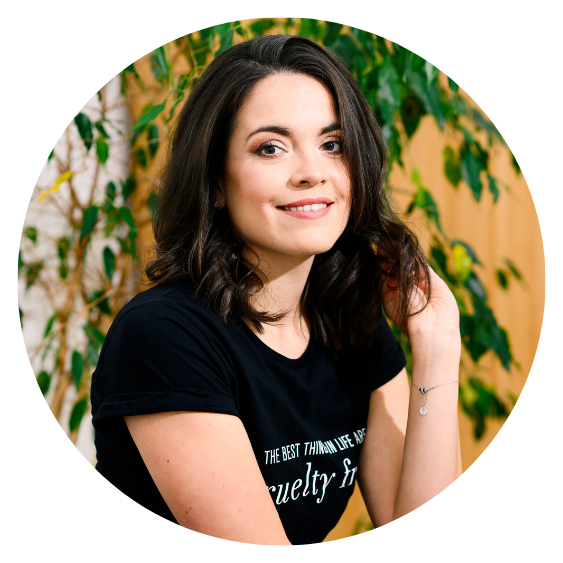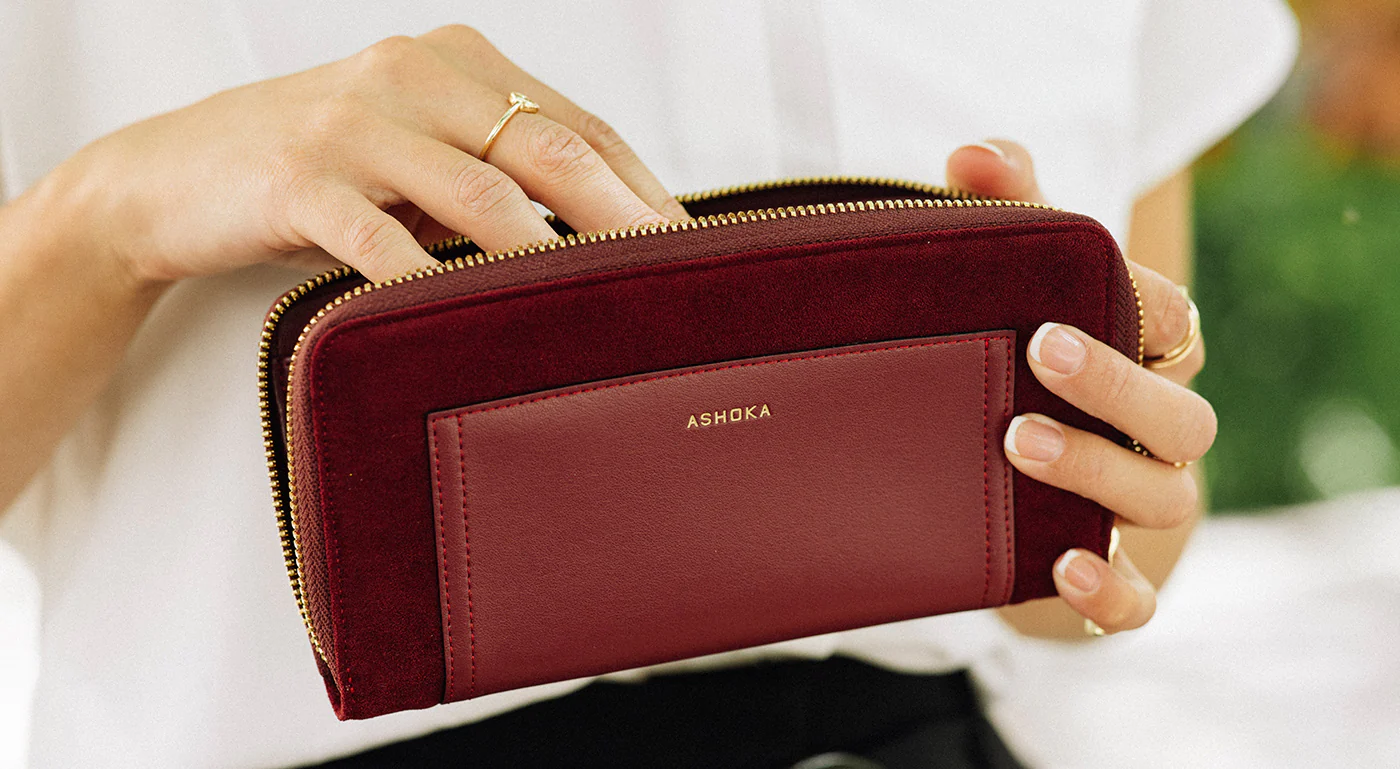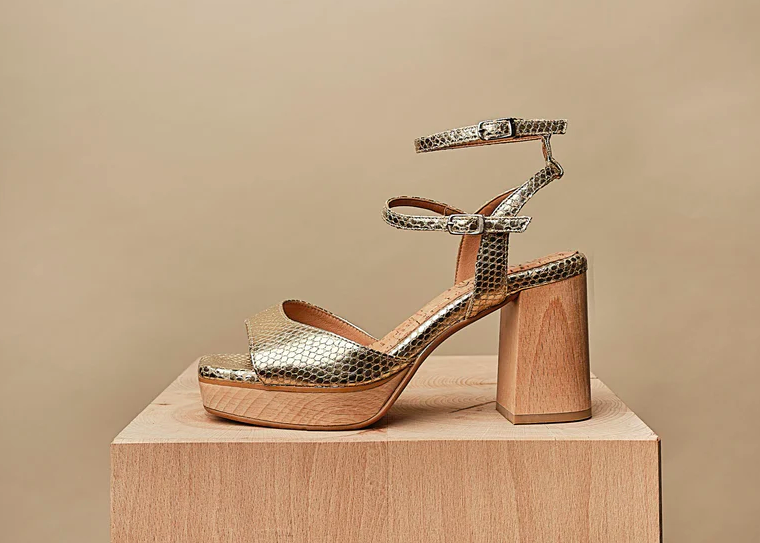The Innovative Designers Transforming Vegan Fashion
Vegan fashion is booming because of climate concerns and an increasing awareness of animal suffering, but it is also on the rise because designers today are finally creating the vegan styles to rival mainstream fashion. When it's clear that ethical fashion can be desirable, it becomes easier for the industry to have a shift in mindset.
An example of this mindset shift is Casey Dworkin, founder of shoe brand Sylven New York. Ethically minded from the start, Casey always aimed at making her brand sustainable. But it wasn't until after her own vegan awakening that she transformed Sylven into what it is today: a 100% vegan label, moving away from selling leather designs. Offering covetable designs such as daring metallic ankle boots, Sylven has a favourite when it comes to materials. “Apple leather has been such a great material for us to use and really opened us up to a whole new way of producing,” says Casey. “As a designer who previously used vegetable-tanned leathers, the texture and feel of apple leather is comparable to the animal based materials we used to use.” This innovative textile also holds up well in a comparison to animal skins: “We have had both vegetable-tanned and apple leather versions of the same shoe styles available at the same time and often people can’t tell the difference,” reveals Casey, concluding that ”it’s an innovation that vegans and non-vegans alike can be excited about.”
Credit: Sylven New York
Vegan brands are stepping up their leather-free game by offering leathers made from plants. LUXTRA London founder Jessica Kruger works almost exclusively with plant-based leathers, such as those made from pineapples, apples, and cactus. When asked about the hunt for the perfect material, she says: “At LUXTRA we're always on the lookout for the 'holy grail' of materials: ones that are 100% cruelty-free and that have the least impact on the planet. In terms of qualities, we look for materials that look premium, come in a decent range of colours, and have a nice hand feel - some can feel like plastic to the touch. In order to make our accessories long-lasting, we also focus on abrasion resistance. In terms of sustainability, our dream materials are ideally plastic-free and produced relatively close to our manufacturers...oh, and aren't super expensive!” A long list, but material innovation means that LUXTRA might soon find its holy grail.
Credit: LUXTRA
Both vegans and non-vegans can also be excited about...wearing fur. Yes, you read that right: but in this case, the fur in question would be entirely free from any animal involvement, and also moving away from the traditional go-to alternative: acrylic and other types of petroleum-derived synthetics. As pretty much every high-end designer on the planet has publicly renounced fur, the terrified fur industry created a narrative around faux fur being made from plastic and hence detrimental to the planet. But not only is this false – research has shown that a mink coat will always have several times the environmental impact of faux fur – it’s also becoming an outdated argument. French faux- fur artisans ECOPEL have created KOBA , the world’s first plant-based fur. Made from corn, this material uses 30% less energy and emits 63% fewer greenhouse gases than traditionally made faux furs. Stella McCartney has already worked with this innovative fur, and Sophia Loren is a fan .
Credit: ECOPEL
That elusive perfect material might just come in the form of Natural Fiber Welding's plastic-free vegan leather Mirum, which is made from plant oils and waxes that have been welded together. Entirely free from any petroleum-derived substances, Mirum is currently used by handbag brand Melina Bucher. A pioneer in the vegan handbag space, Dutch entrepreneur Melina Bucher – the name behind the brand – is committed to “redefining luxury, one bag at a time”. Her brand is among the the first to work with Mirum, championing this innovation that will help minimise fashion's ubiquitous use of plastic (let's remember that while many plant leathers contain plastic, animal skins are also coated in it for durability), while sparing animals from a violent death.
Credit: Natural Fiber Welding
But it's not all about leather – and it's not all about accessories, either. While leather is on the receiving end of criticism as the link between animal agriculture becomes more evident, one material that has evaded scrutiny is feathers. Hailed as one of the most prominent fashion trends at recent runway shows, feathers have been documented by undercover investigations to be a product of extreme cruelty: feathers described as “marabou” in reality often come from turkeys or chickens raised for meat, and ostrich feathers are taken from the bodies of birds killed at just one year old by being put in an electric stunner and then having their throats cut. Sometimes, feathers are ripped from the birds' bodies while they are still conscious.
Until very recently, vegan feathers have been excruciatingly few, and those available often didn't have a very realistic appearance. But ethical fashion brand Blue District is setting out to change that with its creation “Ethical Plumes” - vegan-friendly feathers made with bamboo fiber.
Credit: Blue District
Blue District's Cici Voise explains how the creation was born: “I came up with the idea of making an alternative to ostrich feathers after seeing them trending on all the runways and being unable to find cruelty-free substitutes. I learned that fast fashion was also using real feathers. After around a year of trying what was available on the market such as faux fur, I decided to make faux feathers myself. I worked with a fabric manufacturer who specialized in threading bamboo and other types of natural fibers, and the feathers were created.”
The brand's extravagant garments embellished with their high-end vegan ostrich feathers are a great testament to how far vegan fashion has come, and a sign of what might still be on its way. Watch this space – material innovation is just getting started.
Written by Sascha Camilli
Sascha Camill is a writer, speaker and vegan fashion expert. She founded the world's first digital vegan fashion magazine Vilda, and is the author of Vegan Style: Your Plant-Based Guide to Beauty, Fashion, Home & Travel. Her podcast, Catwalk Rebel, is out now.
Want to write for Species Unite? We are looking for well-written stories focusing on content that informs, inspires, and engages our audience with topics surrounding animal rights.
We Have A Favor To Ask…
Species Unite amplifies well-researched solutions to some of the most abusive animal industries operating today.
At this crucial moment, with worldwide momentum for change building, it’s vital we share these animal-free solutions with the world - and we need your help.
We’re a nonprofit, and so to keep sharing these solutions, we’re relying on you - with your support, we can continue our essential work in growing a powerful community of animal advocates this year.









The all-electric BMW 5 Series Touring uses innovative, animal-free materials that are as robust as leather and more sustainable.